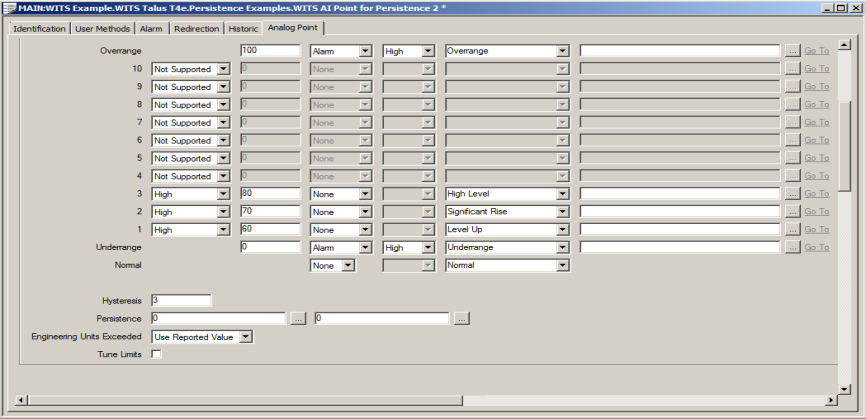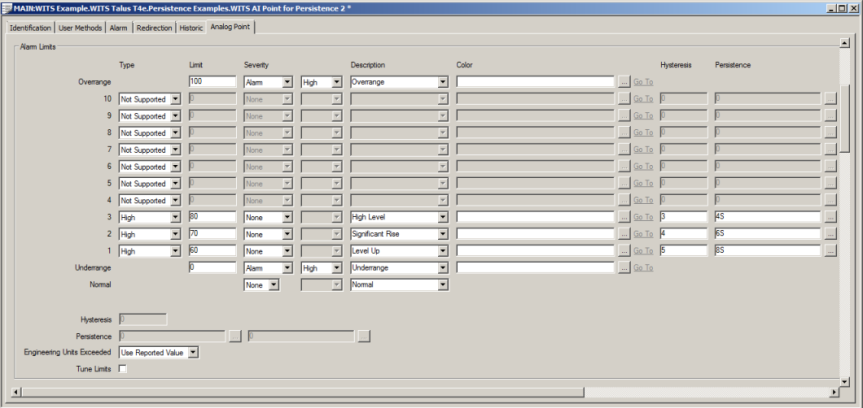If an analog point's value fluctuates around an alarm limit, it can cause unnecessary point state changes. Depending on the configuration of the point, the state changes can cause alarms to be raised and cleared. Hysteresis can help to prevent this by setting the Field Device to only change the state of a point if the point's value:
- decreases below a high limit by the Hysteresis amount (or more).
- increases above a low limit by the Hysteresis amount (or more).
With WITS Field Devices, hysteresis can be supported in one of two ways:
- On a per point basis, where a single hysteresis value is applied to all of an analog point's limits.
- On a per limit basis, where each limit of an analog point can have its own hysteresis value.
If you do not know if your Field Device supports hysteresis, or are unsure which type of hysteresis is supported, please refer to its Device Profile (see Display a WITS Device Profile).
You can define the Hysteresis amount(s) for a WITS analog point by using the WITS Analog Point Form:
- Log on to ViewX via a user account that has the Configure permission, and then display the Form for the Analog Point (see Display a Form in the ClearSCADA Guide to Core Configuration).
- Select the Analog Point tab.
-
In the Alarm Limits section, enter the hysteresis amount you require in the Hysteresis field(s). If your Field Device supports Single hysteresis per point, there is one Hysteresis field available, shown below the limits.

If your Field Device supports Separate hysteresis per limit, there is a Hysteresis field for each limit, shown on the right-hand side of the limit rows.

NOTE: When entering the Hysteresis amount(s), you need to ensure that the hysteresis does not cause the limits to become non-sequential. For example, Limit 10 minus the Hysteresis amount has to be greater than Limit 9.
- Save the configuration.
-
When you have completed the point configuration, you will need to download it to the Field Device by using the Outstation item's Download Configuration (WITS Outstation) action.
If your Field Device does not support download configuration, you will need to make the same changes to the Field Device's configuration locally.
Further Information
If you are unfamiliar with Hysteresis, see Specify the Hysteresis - the Minimum Value Change that can Clear an Alarm in the ClearSCADA Guide to Core Point Configuration.
Persistence can also be used as a means of managing fluctuating values caused by 'noise' (see Persistence for WITS Database Points)